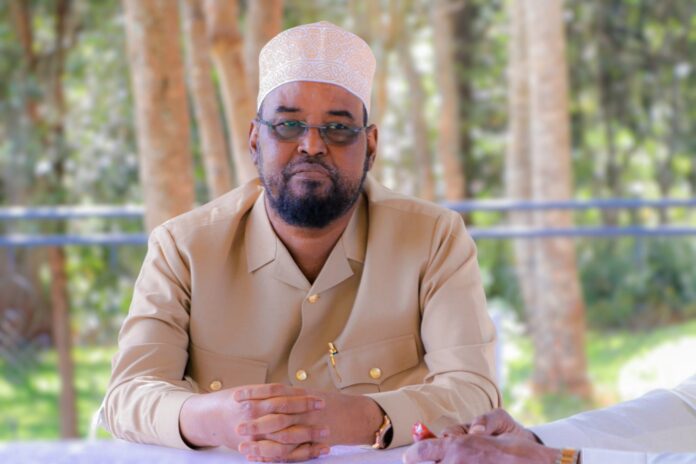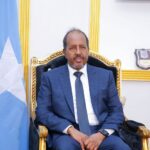NAIROBI, Kenya – The opposition in Jubaland on Sunday met with President Ahmed Madobe in a bid to unite for a common course of fighting terrorism in Jubaland.
In a surprise move that caught many unawares, the opposition which has been meeting in Nairobi said that they were offering 100 percent unconditional support to the president noting the prevailing circumstances dictate so.
In a brief statement, the faction led by ex-state minister Abdullahi Elmoge Hersi said the decision to back the Kismayo-based administration was informed by “the prevailing threat of Al-Shabab and other crucial factors”.
“We want to make it very clear that our meeting has been necessitated by the prevailing circumstances. We have decided to put aside our political differences for the common good of our people. We want to completely rid of al Shabaab in areas where they still are,” he said.
“At this juncture, Jubaland cannot afford a political push-and-pull. We have a growing threat posed by Al-Shabab and we must set aside our personal and political interests in a bid to focus on the campaign to free areas controlled by the militant group (Shabab),” the statement read in part.
Hersi disclosed that as leaders, they will always come together and discuss and reason together on matters of development and also when Jubaland is under threat.
The coming together of the opposition is a major boost for President Madobe’s administration.
There have been political realignments and behind-the-scenes agreements by politicians in a bid to mount a formidable campaign against Madobe.
Hersi said the meeting is the first in a series of multi-faceted consultative meetings to be held by the political leaders ahead of a military campaign against al Shabab.
He emphasized that it is aimed at achieving unity of purpose against “whatever threatens the peace and stability of Jubaland”.
Jubaland was supposed to go for election in August this year but the elections were pushed forward for another year.
Jubaland is an autonomous region in southern Somalia, Its eastern border lies 40–60 km east of the Jubba River and stretches from Gedo to the Indian Ocean, while its western side flanks the North Eastern region of Kenya.
Kenya and specifically Northeastern plays a big central role in the politics of the larger Ogaden community, a reason politicians from the government of Somalia and Jubaland always go there and Nairobi to hold meetings with their clansmen.
Political realignments and behind-the-scenes agreements have been going on in Jubaland for months now.
President Madobe has time and again expressed his confidence in retaining his seat amid growing criticism by his opponents.
The Jubaland election is important for Kenyans because it is seen as a good test to gauge the impact of the Kenya Defense Force’s presence in the state they greatly helped in its formation after jointly capturing the capital city, Kismayo, in 2012 with the help of Madobe’s forces.
In July, the Chief of Defence Forces Gen Francis Ogolla visited Kenyan troops in Somalia as part of a morale boost ahead of a major planned operation against the al Shabaab terror group.
He also held talks with Jubaland leader Ahmed Madobe, which officials said was to ensure the planned operation on the terror group succeeds.
Al Shabaab’s major bases are in the Gedo region where they recently staged a show of their troops.
Kenyan troops are in Somalia under the African Union Transition Mission in Somalia (ATMIS) to help fight the al-Shabaab terror group. KDF went to Somalia in October 2011.
The Star






